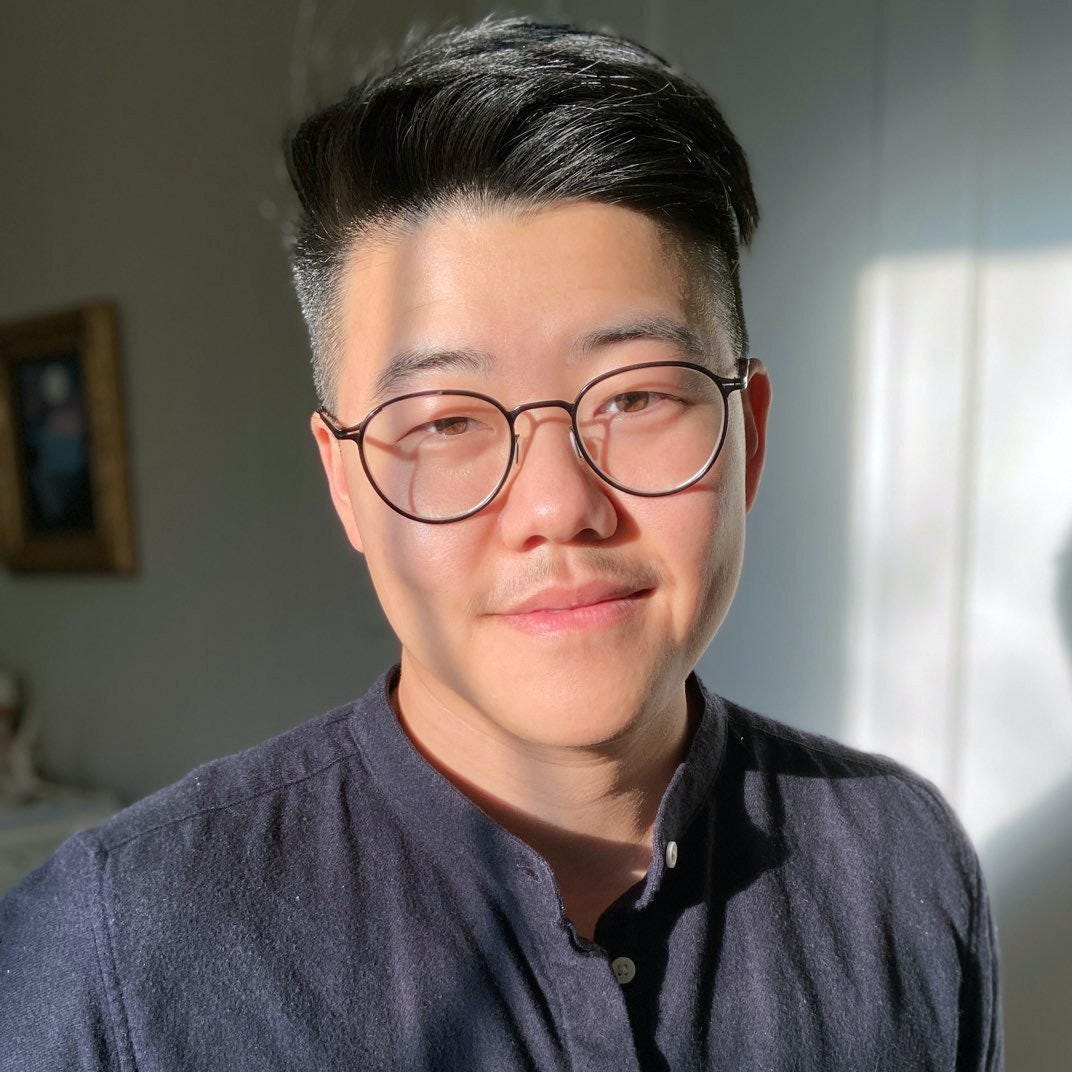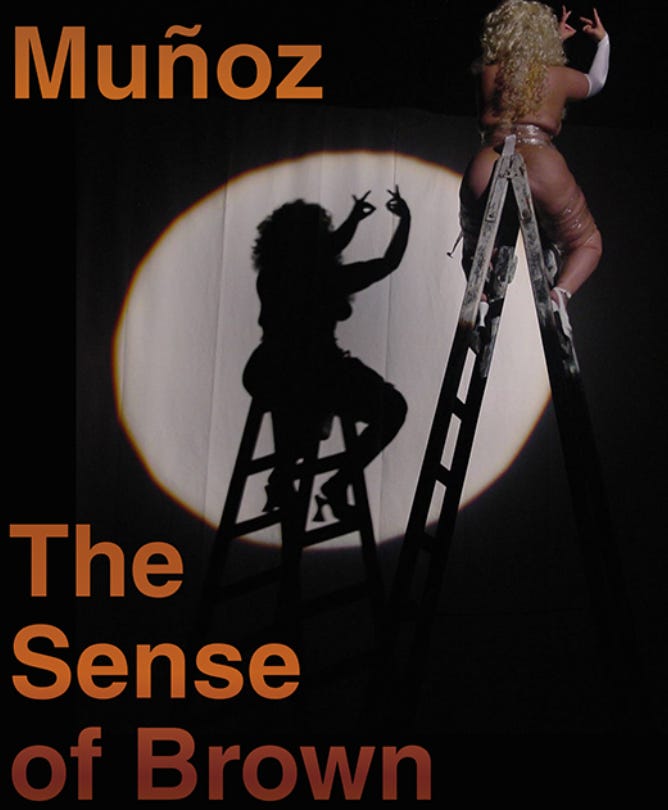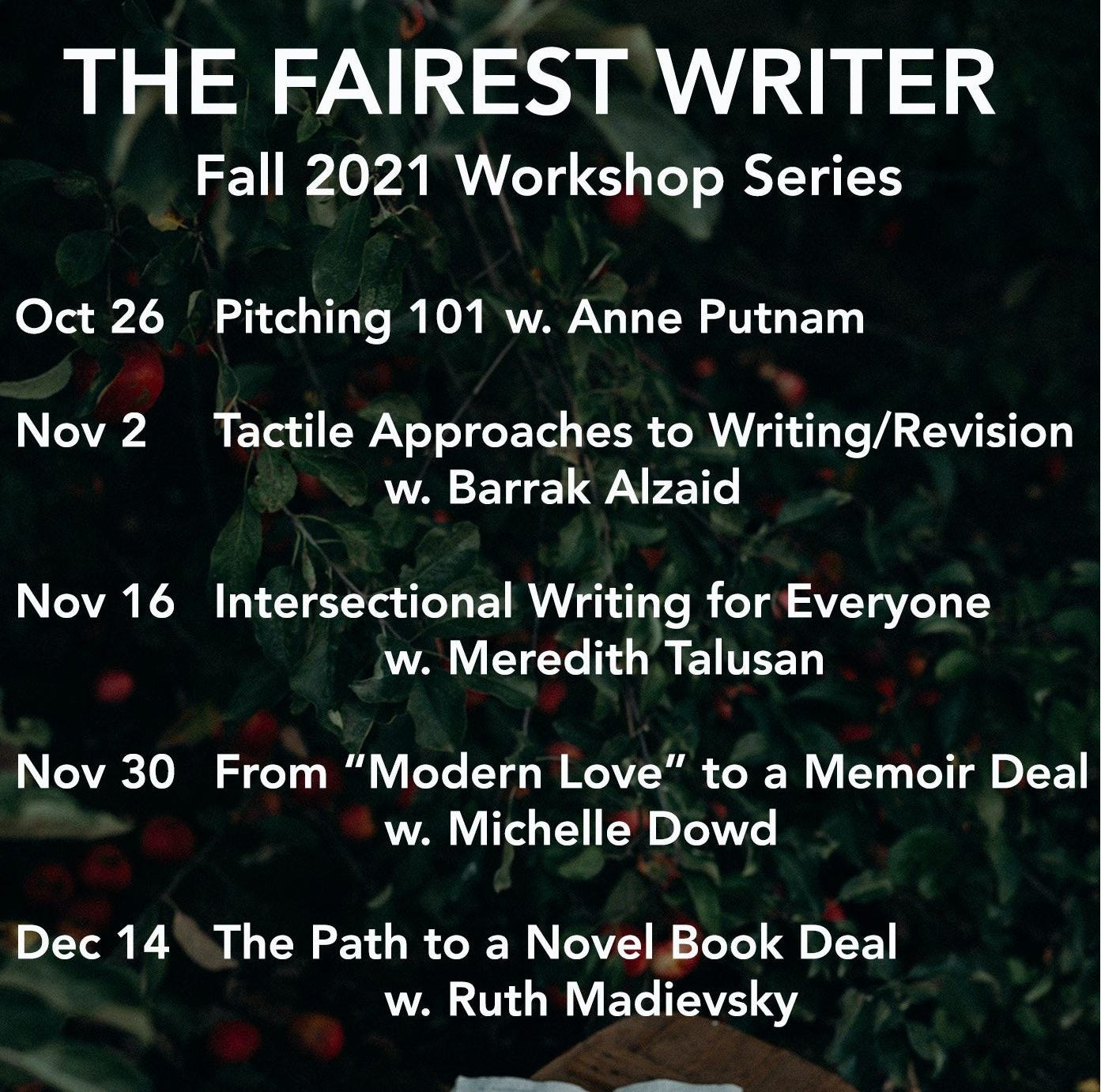66. play and generosity
thinking about time & space to play
Hello, and happy Monday.
Over the weekend, I got to attend a dear friend's wedding in Palm Springs. (It was beautiful and lovely, of course. Congrats, Faye! 🥳 ❤️) So, I'm currently writing to you from Southern California. Obvious to say, but it still baffles me to think about how different the seasons are from one coast to the other. I wore sandals. SANDALS. IN OCTOBER. Absolutely wild. 😉
It's been so wonderful to be here and get some warmth from the sun, but I'm also looking forward to coming back to the East Coast and seeing all the leaves in red & orange.
✏️ Still processing.
A couple weeks ago, I wrote that I was in the process of re-organizing my book manuscript.
(Some background: As a postdoc, I am currently in the process of revising my dissertation from grad school into a book. This process will likely take me a few more years to complete, as the exercise of writing a dissertation, I have come to find, is a bit different than the exercise of writing a book. I can write more on this for another newsletter, if you'd like! Essentially, my book is a reframing of the history of US-Iran relations as the history of Iranian racialization in the US. It's this project that I'm using my process journal for and reflecting on every week.)
As I was re-reading my dissertation, I felt that the organization was relying too much on chronology to do the work of structuring the book. That is to say, the way that I decided to cut up the narrative into chapters had more to do with conventional periodization than it did with the contours of my argument. After I finished reading, I was left with the questions: How do all of these parts tie together? Does it even make sense for them to be organized this way? How does form reflect the arguments I really care about showcasing?
I ended up taking the past two weeks to just focus on the macro of my table of contents. The only way I could describe my process was literally throwing spaghetti at the wall and seeing what stuck. Each day, I would come up with 2 or 3 different TOCs that reflected different ways of structuring my book. They didn't have to be good or smart or interesting or profound. They could be basic or zany or impossible or just plain bad. But, to extend the metaphor. by throwing all the different noodles—saucy ones and dry ones and salty ones and short ones—I was able to have some fun with my work and get out of my head.
Although I'm still refining the contours of my TOC, I'm much closer to understanding where I want my narrative to go than I was before. If this is your sign to give yourself some time & space to play, I highly recommend it!
📚 Still reading.
Muñoz, José Esteban. The Sense of Brown. Durham: Duke University Press, 2020.
I decided to re-read The Sense of Brown this week in the spirit of play and possibility.
José Esteban Muñoz was a performance studies & queer theorist whose work has been so generative in my own thinking. This volume was put together posthumously by two of his students who have become major fixtures of the field in their own right. While many of the chapters were in the process of being completed or still being thought through, the ways in which the book thinks about belonging and connection makes me so hopeful for the work of scholarship.
While I do a bit of performance studies work in my own writing and his work is absolutely critical to thinking about how queer artists of color build spaces of articulation in their work, his work means so much to me because of his (or what I perceieve to be his) generosity towards his subjects and his communities.
Many chapters in the book think about the case of Cuba and cubanía, the ways in which those Cubans living in the United States are still in community one another despite political difference. I think that the case of Cubans in the United States has some very interesting parallels to those of Iranians in the United States, one of them being the stark distinction between political ideologies based on the homeland's relationship to the United States during the Cold War. The chapter, "Performing Greater Cuba: Tania Bruguera and the Burden of Guilt," was the one that I think illuminates both the connection to Iranian affective possibilities and the generosity I hope to emulate in my own work.
The chapter itself focuses on communal guilt, as a way of thinking through connection:
Rather than differentiate between various kinds of Cuban Americans—us and them, myself and the Other Cuban—I want to consider the way in which there are structures of feeling that knit cubanía toghether despite different national pedagogies and ideological purchases. (87)
This idea—developing a theory of understanding for communiality and commonality among Cubans—is one that stopped me in my tracks the first time I read it. Part of the story that I think through in my book is the divergence between Iranians who were pro-Shah and those on the Left. For so long, I hae been thinking about the ways in which these contingencies operated against each other. And while I think it is an important story to tell, there is also something so necessary and crucial to thinking about ways in which these groups still have a similar way of being in the world. The entirety of the book seems to be a meditation on the idea of the "brown commons," or an affective connection that minoritarian subjects have to one another. This idea of connection and the "being-in-common" of brownness is something I think worth thinking a lot more about.
🌀 Still consuming.
In the bookshop:
Currently Reading: Bel Canto by Ann Patchett
On deck: Detransition, Baby by Torrey Peters
If you’re interested in thinking more about Muñoz’s work, I highly recommend Jane Hu’s beautiful book review of The Sense of Brown.
An interesting meditation on the concept of “vibes.”
Meredith Talusan is putting on a bunch of amazing free fall writing workshops over October and November. You can sign up through this issue of her newsletter!
“One thing that is very positive is that Asian American young people, high school students and college students, are becoming more active. They are speaking out and organizing. I think that’s where the hope lies.” Mae Ngai in conversation with Jilene Chua
📖 Book club corner.
For October's tiny driver book club, we will be reading selections from Yanyi's The Reading and be joined by Yanyi himself!

If you don't know about Yanyi or his amazing newsletter, The Reading, let me be the first to tell you that his words have been the fodder for much of my own conceptualization of what it means to be a writer. Yanyi himself is a poet. He is the author of Dream of the Divided Field (One World Random House, forthcoming 2022) and The Year of Blue Water (Yale University Press 2019), winner of the 2018 Yale Series of Younger Poets Prize. His newsletter, The Reading, is a creative writing advice column. Once a month, he answers a reader letter about writing and the creative process.
I've been such a fan of Yanyi's work for so long, so it is quite the honor to have him join us for this very special book club! Folks who sign up for the book club will get a GDrive link with a curated selection of pieces from The Reading in the registration confirmation email.
Here’s the event info:
Date & Time: Monday, October 25 @ 5PM PST/8PM EST
Registration link!
Suggested donation (for those able to donate): $3-20 through Paypal or Venmo (@idyalz)
🐶 A pup-date.
Girlie looking inquisitive as always:
As always, thanks so much for reading through, and I'll see you in the next one!
Warmly,
Ida





I love this idea of the “brown commons” - even though I know my personal politics clash with others in my culture, there is the communality that is an actual *feeling*. I appreciate these ways of wording it, and I’m glad someone has written about it! Looking forward to any other thoughts you might have about it!
I am so glad that you are almost there where you want to be in terms of structure and organization. Would love to read about the difference between diss and book . Another thing that I would like to know more is about argumentation itself and the connection between chapters with the overall argument of the proposed book .